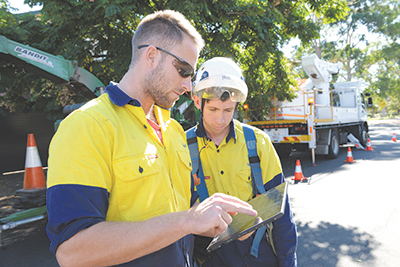Many councils have seen the light when it comes to improving asset management efficiency through the use of emerging technologies – but it’s how the City of Unley is using the new data available to further improve productivity that is really exciting.
The South Australian council is integrating its new asset management technology into organisational strategic planning with a defined level of service delivery.
In the past, the City of Unley has managed the maintenance of its assets with a cyclic and reactive approach.
The new approach is built on defined levels of service, and a commitment to response times linked to an asset profile structured around agreed service standards.
General Manager of Assets and Environment John Devine said the biggest transformation was gaining visibility where there was none, or where it was limited.
“We spent time reviewing our assets; dissecting each asset into different service categories and then agreeing on service standards for each category,” said Mr Devine.
“Now there is greater emphasis on delivering the annual maintenance programs and aligning reactive customer requests with this work. We’re now equipped to accurately plan for the future and forecast budget effectively.”
The innovative system was implemented in January and is already providing a more streamlined workflow.
Work crews can now access critical data on mobile devices, allowing them to locate assets, capture data, evaluate information, and update details on site. The data helps to track tasks and manage workflow, and can also be analysed for future modelling, reviewing asset condition and adjusting maintenance programs.
Mr Devine said that the defined service levels are reducing the number of random customer requests because they are ensuring the assets are always maintained at an acceptable level.
“Work schedules based on data analysis and defined service levels are reducing the instances of resident requests.
“We know what works are scheduled well in advance, so when we do get a request we can just look at the location and the next time works are scheduled and respond to the customer immediately.”
Reporting shows that productivity has increased by over 20 percent and continues to improve.
As a result, overtime has been reduced, the use of casual staff has declined, and the backlog of maintenance has eased leading to a notable increase in compliments from residents.
Mr Devine said the increased productivity would result in even better service standards.
“Previously supervisors were administrators; they had spread sheets to update, forms to fill out.
“Today, supervisors are out in the field, leading teams, checking work and finding time to innovate on new ways to deliver services and boost productivity”.

















